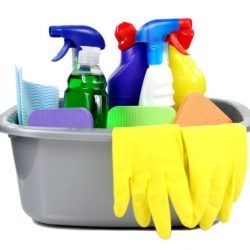Books are a valuable investment, and it’s important to keep them clean and in good condition. Over time, books can become dusty, dirty, and even moldy. If you don’t clean them regularly, they can be damaged and eventually become unreadable.
Here are a few tips on how to clean books at home:

Dust your books regularly
Dust is the enemy of books. It can make them look dirty and can also damage the pages. To dust your books, use a soft cloth or feather duster. Be sure to dust the inside and outside of the books, as well as the spines.
Clean the covers of your books
If your books have dirty or stained covers, you can clean them with a mild soap and water solution. Be sure to test the soap solution on an inconspicuous area of the book first to make sure it doesn’t damage the cover.
Remove mold from your books
If your books have mold, you’ll need to take special care to clean them. Mold can damage the pages of your books and can even make them unreadable. To remove mold from books, you’ll need to use a mild bleach solution. Mix one part bleach with ten parts water. Dip a cloth in the bleach solution and wring it out until it’s damp. Carefully wipe the moldy areas of the book with the cloth. Be sure to wear gloves and a mask when working with bleach.
Repair damaged books
If your books have torn pages, loose bindings, or other damage, you may need to repair them. There are a few different ways to repair damaged books. You can take them to a professional bookbinder, or you can repair them yourself. If you choose to repair the books yourself, there are a few different kits available that you can use.
Avoid Harsh Chemicals
While the temptation to use powerful cleaning agents may arise, it’s crucial to resist the urge. Harsh chemicals can be detrimental to the delicate pages of your books, causing irreversible damage. Instead, opt for mild, non-abrasive cleaning solutions that are specifically designed for book preservation. These gentle cleaners will effectively remove dirt and grime without compromising the integrity of the pages.
Proper Storage Matters
Humidity and dampness can become the arch-nemeses of your treasured books. Avoid storing books in areas prone to moisture, as it can promote mold growth and cause irreparable harm. Always choose a cool, dry location for book storage to protect them from the detrimental effects of dampness. Consider investing in a dehumidifier or using silica gel packs to maintain the optimal environment for your book collection.
Opt for Delicate Techniques
 While vacuum cleaners are undeniably effective for many cleaning tasks, they are not ideal for handling delicate books. The powerful suction force can damage the pages, especially if they are fragile or worn. Instead, opt for more delicate cleaning methods, such as using a soft brush or microfiber cloth to gently remove dust and dirt. These gentle techniques will ensure the preservation of your literary gems.
While vacuum cleaners are undeniably effective for many cleaning tasks, they are not ideal for handling delicate books. The powerful suction force can damage the pages, especially if they are fragile or worn. Instead, opt for more delicate cleaning methods, such as using a soft brush or microfiber cloth to gently remove dust and dirt. These gentle techniques will ensure the preservation of your literary gems.
Avoid Wetting Pages
As you embark on the cleaning journey, it’s imperative to steer clear of wetting the pages of your beloved books. Water can seep into the paper, leading to warping, disfigurement, and even mildew formation. Should you encounter stubborn stains or spills, use a soft, slightly damp cloth to gently dab the affected area. Patience is key as you carefully work on removing the blemish without compromising the book’s condition.
A Cool, Dry Haven
Books thrive in a cool, dry environment, much like we do. Maintaining the right storage conditions is vital for their long-term preservation. Aim to store books away from direct sunlight and avoid extreme temperature fluctuations, as these factors can cause discoloration and damage to the binding. By selecting an ideal storage area, you are taking a significant step toward preserving the condition and beauty of your cherished books.





